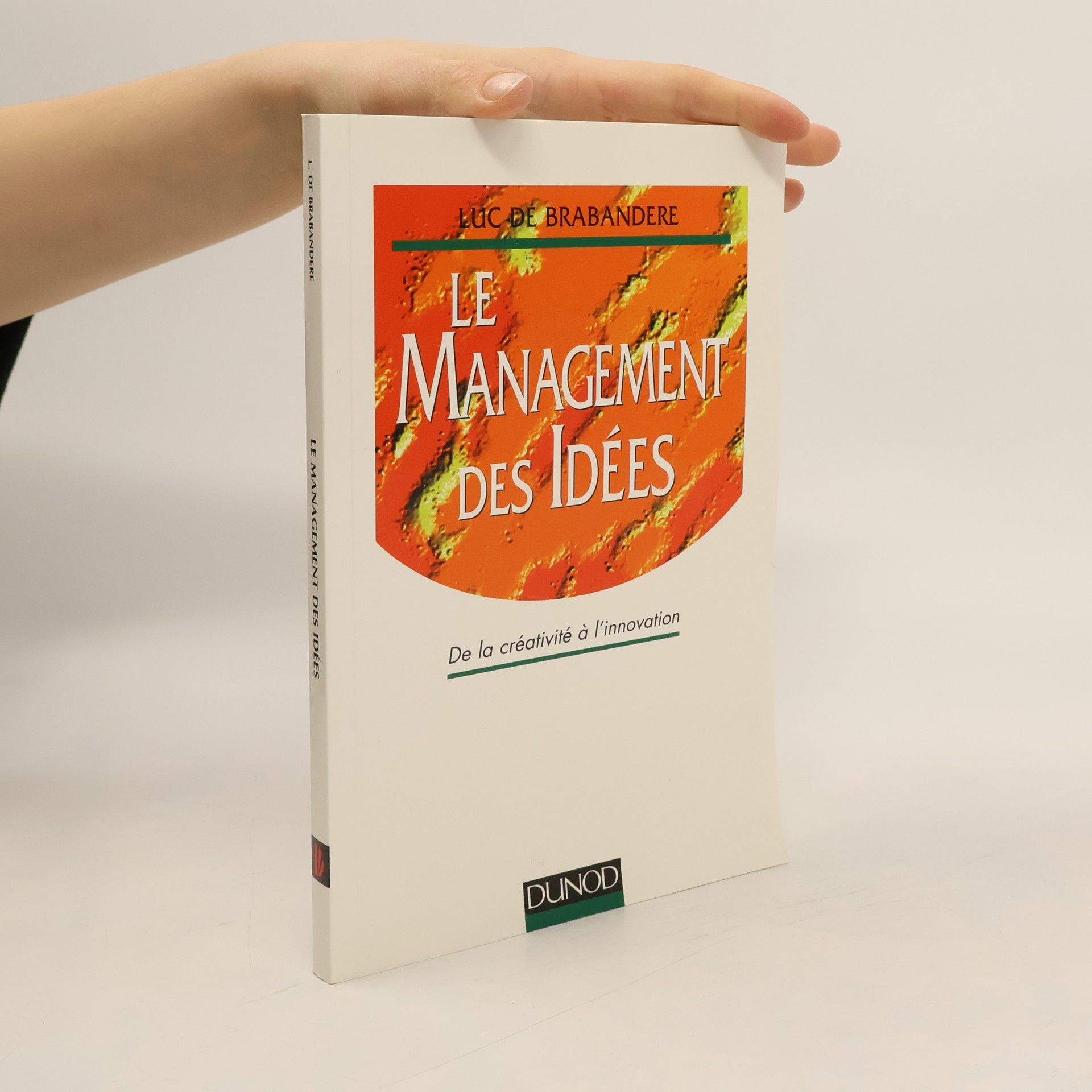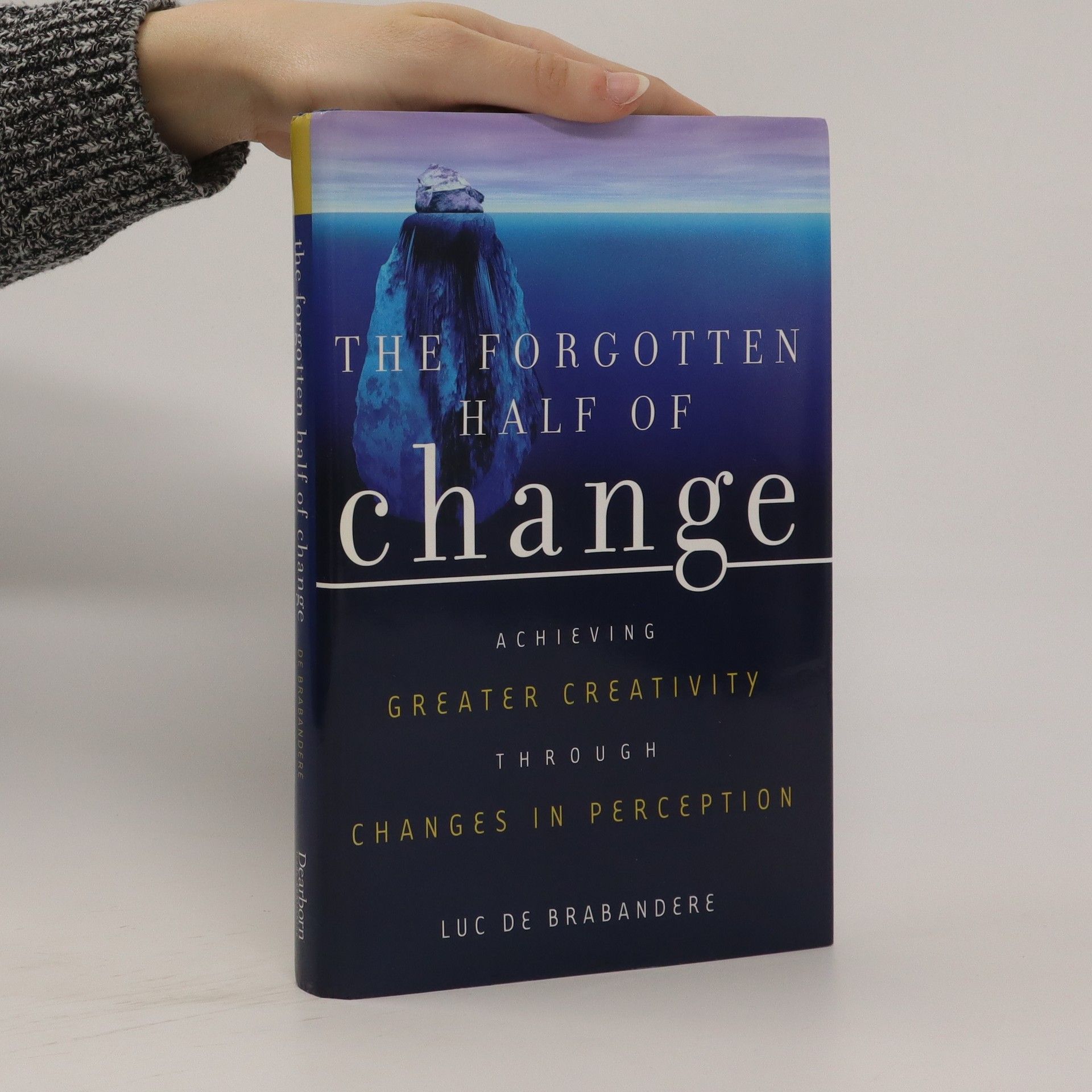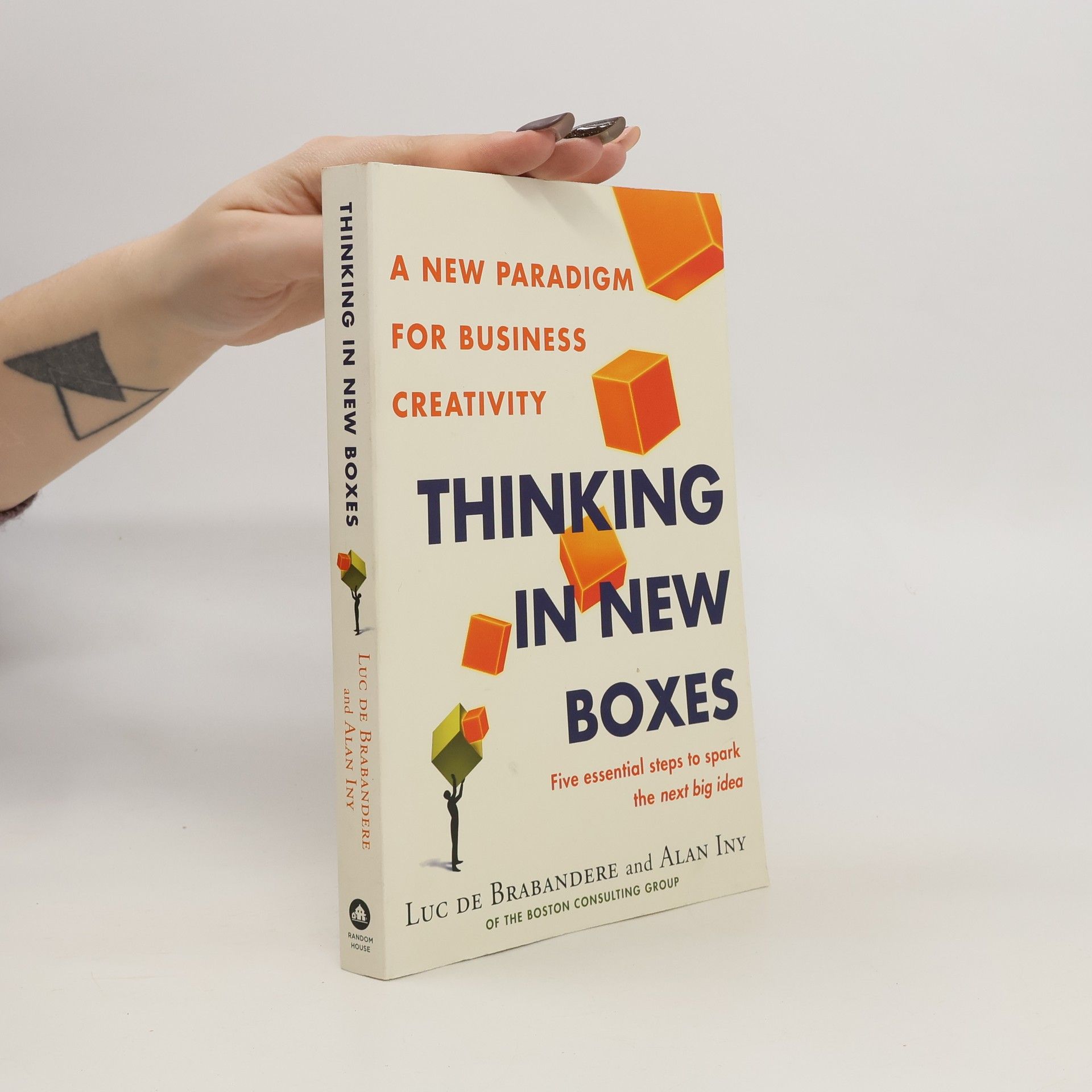Luc De Brabandere Reihenfolge der Bücher (Chronologisch)





Thinking in New Boxes
- 352 Seiten
- 13 Lesestunden
Outlines a new model of practical creativity that challenges business professionals to evaluate customers, goals, and companies in engaging alternative ways, explaining how to develop strategies for effective and adaptive business environments.
Thinking in new boxes : a new paradigm for business creativity
- 330 Seiten
- 12 Lesestunden
Outlines a new model of practical creativity that challenges business professionals to evaluate customers, goals, and companies in engaging alternative ways, explaining how to develop strategies for effective and adaptive business environments.
The forgotten half of change : achieving greater creativity through changes in perception
- 192 Seiten
- 7 Lesestunden
Unlock and Embrace a New Mindset about Business Creativity The 20th century saw the United States dominate the world of innovation, but at the dawn of the 21st century it’s become pretty clear that the pace of change in a global economy demands not only innovation, but creativity. We must become as good at changing our perceptions as we have become at changing reality. Inspiring creativity is one of the most pressing needs for American corporations, particularly those in markets that are forcing them not only to improve but transform themselves. Yet true creativity can be had only if you are willing to break the rules that have locked you in a set way of thinking, not just doing. This unique book will help managers think about how they think. This understanding will help them inspire creativity and sense when it is time to focus on the second half of change—changing perception. The Forgotten Half of Change differs from other books the same way perception differs from reality. It is at once humorous and humanistic, making fun of our weaknesses yet sympathizing with our challenge to be both active and thoughtful. It entertains and challenges its readers at the same time with an array of examples drawn from philosophy, mathematics, technology, and linguistics. Ultimately, this book may help us regain our ability to astonish ourselves and others.
" Faire la différence ! "" Telle a toujours été la clé du succès pourune entreprise, et aujourd'hui, à l'heure de la surinformation et de la surcommunication, plus que jamais ! Seule l'émergence d'idées nouvelles traduites en produits, services ou process, peut encore garantir un avantage concurrentiel durable... à condition de bien en comprendreles mécanismes et les enjeux.Ce livre propose au responsable d'entreprise de passer de la créativité à l'innovation : changer sa perceptionde la réalité : susciter une culture de l'imagination parmi ses collaborateurs, retenir les meilleures suggestions et se donner les moyens de les mettre en oeuvre ; pour la transformer : considérer les idées comme une ressource stratégique à part entière, apprendre à les gérer età les exploiter à travers des mécanismes de filtre, de tri et de combinaison."""